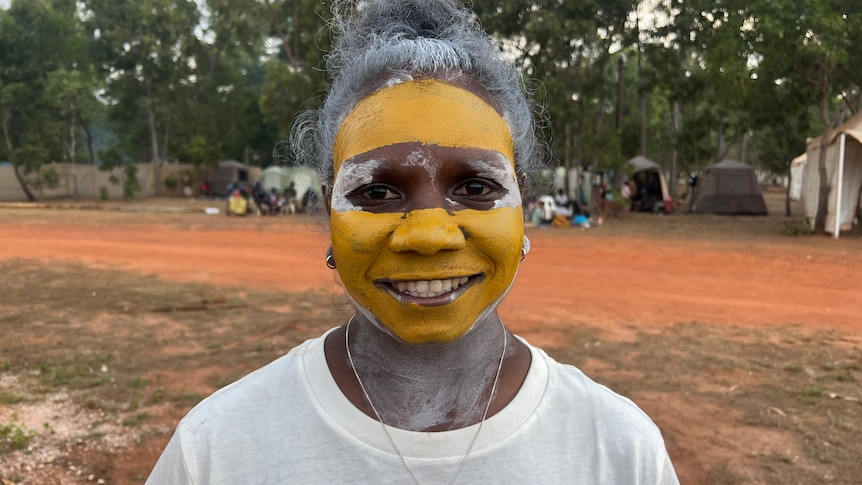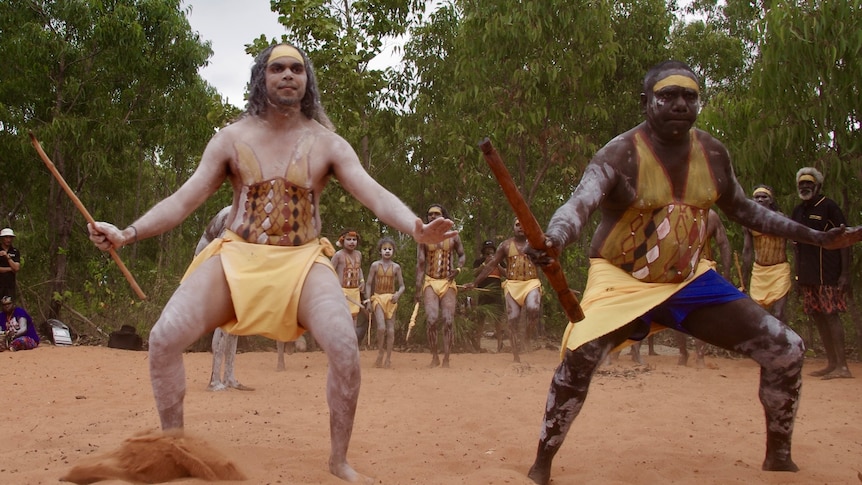Prime Minister Anthony Albanese wants Australians to consider a draft question — released by the government this weekend — asking whether the constitution should be changed to create an Indigenous Voice to Parliament.
Key points:
- Anthony Albanese has announced the question he wants to ask the Australian public at a referendum
- Legislation for the Voice will not be written until after the referendum has happened
- Indigenous people want the government to make the referendum and Voice discussion accessible for communities
He told ABC’s Insiders program that a referendum could be as powerful as the national apology for the Stolen Generations and the Mabo decision.
“This is an opportunity for us to demonstrate our maturity as a nation, to uplift our whole nation. And I’m very hopeful that we can do so,” he said.
“I recognize that it’s a risk, but if you don’t try then you have already not succeeded.”
A Voice to Parliament, created via a referendum, was the key recommendation of hundreds of Aboriginal people at Uluṟu in 2017.
There is now a push from the Opposition and the Greens for more detail on what role and function the body would have.
The Voice has been described as an advisory body that would permanently give frank and fearless advice to the federal parliament.
But the Prime Minister has suggested there will be limitations to the power a Voice would have, stamping out the claims from the previous government that it would become a “third chamber” of parliament.
“We’re a democratic nation, and parliaments, in the end, they’re the accountable body,” he said.
‘Use your voice and be heard’
The Prime Minister made his pledge at Garma, a cultural festival hosted by the Yothu Yindi Foundation in north-east Arnhem Land.
This year, there’s been a reunion of sorts, as clans come together for the celebration, for the first time since the pandemic began.
It has been 17 years since Gumatj and Rirratjingu woman Yirrmala Mununggurritj was last at the Garma Festival.
Ms Mununggurritj says honoring the legacy of her late elders and amplifying the voices of women was her main priority.
“Now that my grandmother’s not with me anymore I’m just here living her legacy, continuing her work which means so much to me … I feel so close to her here,” she said.
She has been busy encouraging young women at the festival to have their say in policy-heavy discussions about topics that affect them.
“Shame is a big thing for Indigenous women and girls in my community, but I’m trying to teach them that it’s a good thing to speak up, use your voice and be heard,” she said.
She has also returned in time for a significant step forward on the path to constitutional recognition for Indigenous people, the announcement of a question that could be asked at a referendum on a Voice to Parliament.
After hearing snippets of the Prime Minister’s speech on Thursday, Ms Mununggurritj said she would like to see the government make an effort to make the language used throughout the referendum campaign more accessible for young people.
“I’ve got a little bit of an understanding of it [the referendum] but I’m still learning about my other culture in the English world, just like many others,” she said.
“They should make it more interesting, so that we can be more excited about it and want to actually learn about it.
“I think I heard him [Mr Albanese] talk about racism which is pretty important … because me as a young kid I grew up being racially discriminated against … I’m just glad that he came here [to Garma] to put us [Indigenous people] and these things on the map.”
Voice legislation will not come before a referendum, PM says
For some, the announcement of a draft question for a referendum has brought a sense of relief that after years of delays, action is finally being taken on the Uluru Statement from the Heart.
But for others, it’s what the government hasn’t announced that is causing doubts.
The Prime Minister wants the question and proposed changes to the constitution to be clear and simple — but that comes at the cost of leaving it to the parliament to determine the composition, powers and function of the Voice.
“The legislation of the structure of the Voice won’t happen before the referendum,” Mr Albanese said.
“What some people are arguing for is having a debate about the consequences of a constitutional change, before you have any idea of whether the constitutional change should happen,” he said.
Mr Albanese said he did not want the debate leading up to the vote to suffer the same pitfalls as failed referendums.
“We were looking for all of the detail and saying well if you disagree… with one out of the 50 [clauses]but 49 are okay — vote no,” he said.
“We’re not doing that. We’re learning. We’re learning from history.
“It’s about giving people who haven’t had that sense of power over their own lives and controlling their own destiny.”
.

